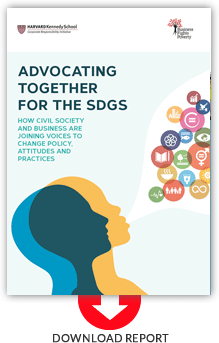In some parts of the world, women and girls currently spend as many as six hours each day on unpaid care and domestic work, which includes tasks like laundry, cooking, cleaning, collecting water and caring for dependants. Despite its vital contribution to families and communities, unpaid care and domestic work often goes un-recognised. It affects women and girls disproportionately, with women around the world spending two to ten times more hours than men on care, limiting their opportunities to learn and work. Moreover, the effects of unpaid and domestic care work are felt most in communities affected by poverty, where limited access to time-saving equipment and poor public infrastructure and services makes a bad situation worse.
The need to recognise and value unpaid care and domestic work has been acknowledged in a specific target under the Gender Equality target Sustainable Development Goals 5. For Oxfam, making care work more visible is key to achieving gender equality and overcoming poverty and is highlighted in its WE-CARE (Women’s Economic Empowerment and Care) initiative. It also aligns strongly with Unilever’s Sustainable Living Plan , which aims to increase opportunities for women and it’s laundry brand Surf. 
For these reasons, Oxfam, Unilever and Surf have come together to jointly advocate for public policies that recognise the burden of unpaid care and domestic work, and reduce and redistribute time spent on unpaid care and domestic work by girls and women through better access to public services, infrastructure and social protection policies. Beyond policy change, both organisations are seeking to challenge and change public attitudes and behaviour and promote shared responsibility with boys and men. For lasting change, there needs to be a fundamental shift in social attitudes, with unpaid work more greatly valued and recognised to be everyone’s responsibility, not just that of women and girls.
Pilot projects have been initiated in Zimbabwe and the Philippines, where women face significant unpaid care and domestic work challenges. The projects aim to support over 250,000 individuals directly and indirectly (60% of whom will be women and girls), reach 12 million through a public communications plan and over 100,000 people indirectly through policy influencing.
Oxfam uses its research and evidence on the impacts of unpaid care and domestic work to raise awareness with national and local government policy makers and to encourage policies for example that improve the siting of safe water access points and introduce communal laundry areas. At the community level, activity is focused on working through schools and with cultural opinion leaders and faith groups to change social attitudes and drive behaviour change. Emphasis is put on building the capacity of women’s groups to advocate on the issue.
Both organisations are also working together to develop a detailed measurement and evaluation framework to assess results. This will include a joint advocacy plan and enabling strategy to engage the Unilever business beyond the Surf brand and to encourage global business leaders and governments to act. Highlighting that for businesses gender equality interventions must go beyond the factory door to supportive norms; companies play an enormous role in shaping women’s roles and rights.
Given the complex and systemic nature of the unpaid care and domestic work issue and the long-term challenge of driving behaviour change, it will take time to demonstrate results and attribute them to campaign activity. Systemic challenges, such as gender inequality, require collaboration and joint advocacy to influence decision makers and relevant actors as the change is beyond the ability of any single actor. The combination of Oxfam’s insights, evidence and community reach with Unilever and Surf’s convening power and consumer insights is aimed at leveraging different skills to advance gender equality.
“Gender equality is not just the concern of half of the world’s population; it is a human right, a concern for us all, because no society can develop – economically, politically, or socially – when half of its population is marginalized. We must leave no one behind”. Mary Robison
For more information on Oxfam and Unilever Partnership contact Sarah Marioni sm******@ox***.uk










